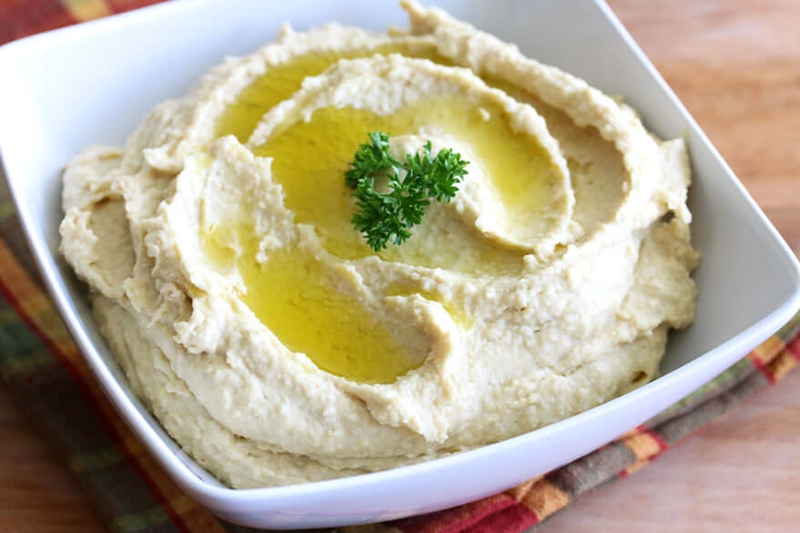Hummus is a combination of chickpeas, garlic, tahini, olive oil, and lemon. Each of these ingredients on their own has a number of health benefits and when combined, you get a delicious and healthy spread that you can use with a number of other foods. Hummus can help manage weight, improve the digestive system and reduce your risk of certain cancers and heart disease. If you have been wondering "is hummus good for you", then read on to learn more about its benefits.

Is Hummus Healthy?
Calories
For every 1/3 cup serving, there are 140 calories which may seem higher than other healthy food option, but these calories are actually incredibly healthy for you since they are natural.
Fiber and carb content
There are 4 grams of fiber in every serving of hummus, or 1/3 cup. Since fiber is something most people don't get enough of through their daily diet, so spreading some hummus on your sandwich can help boost your intake easily. It also contains carbs. The calories in hummus tend to come primarily from the carbs which are essential in providing your body with energy to function properly.
Protein
Since hummus is made of
Fats
Tahini is a sesame paste and when combined with olive oil, you get a significant source of healthy fats from hummus. Tahini and olive oil both contain unsaturated fats which are the types of fats people are recommended to consume. While hummus has 7 grams of fats in each 1/3 cup, a majority of the fats are monounsaturated and polyunsaturated fats. After knowing this, you may not ask "is hummus good for you" any more.
Vitamins and minerals
There are a number of essential vitamins and minerals found in hummus, with the most important being folate, a B vitamin, and iron.
Then How Can Hummus Benefit You?
Weight management
The protein and iron found in hummus can help keep your weight in check. The protein helps fight off hunger cravings because you will feel fuller for longer. It can reduce your snacking throughout the day while also balancing your blood sugar levels. Iron can give you energy a boost which can help you feel more motivated to work.
Reduce the risk of colon cancer
Prevent blood clots
Chickpeas are rich in vitamins E and K which contain blood thinning properties. Vitamin K, especially, can help prevent bleeding and other blood clotting issues. It has also been shown to aid in reversing the effect of certain blood thinning drugs like Warfarin.
Regulates blood sugar
As mentioned, hummus is a good source of carbs, because these are complex carbs. Complex carb release energy slowly over a longer period of time which results in
Benefits those with anemia
The iron in hummus can help provide oxygen to the red blood cells. One cup of hummus contains almost 25 percent of the daily recommendation of iron which means you can get a significant amount of iron from consuming hummus. Additionally, hummus also contain a small amount of vitamin C which helps the body absorb plant-based iron better, making this incredibly beneficial for those who suffer from anemia.
Better for cholesterol
Is hummus good for you if you have high cholesterol? Yes. Hummus
View All Comments /Add Comment